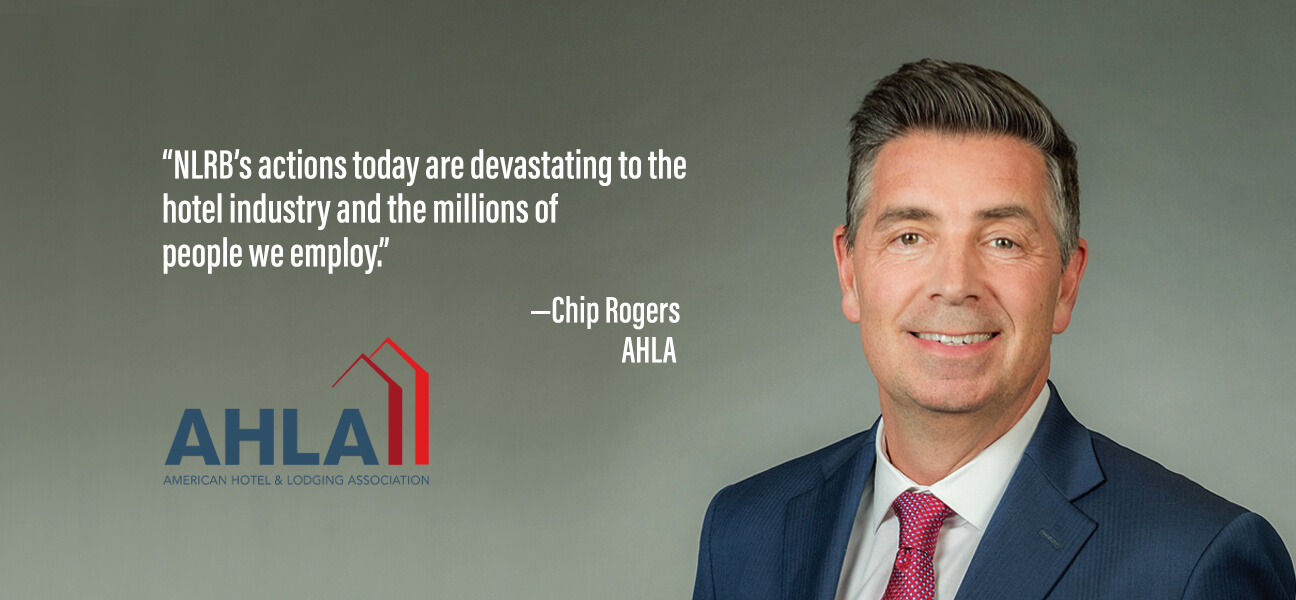The National Labor Relations Board (NLRB) issued a final regulation expanding the “joint-employer standard” under the National Labor Relations Act, which becomes effective Dec. 26. American Hotel & Lodging Association (AHLA) president/CEO Chip Rogers immediately came out against the rule, which his organization says will impact business-to-business relationships in a manner that will limit opportunities for small businesses and entrepreneurs and threaten the franchising model.
The final rule establishes a new standard for determining whether two employers, as defined in the act, are joint employers of particular employees within the meaning of the act, according to the NLRB.
The board believes that this rule will more explicitly ground the joint-employer standard in established common-law agency principles and provide guidance to parties covered by the act regarding their rights and responsibilities when more than one statutory employer possesses the authority to control or exercises the power to control particular employees’ essential terms and conditions of employment. Under the final rule, an entity may be considered a joint employer of another employer’s employees if the two share or codetermine the employees’ essential terms and conditions of employment.
“NLRB’s actions today are devastating to the hotel industry and the millions of people we employ,” he said. “This is a partisan gambit to force unions on hotel franchisees and their employees as well as countless other small businesses and workers across the country. NLRB’s goal is to coerce businesses to the bargaining table with workers they do not actually employ to artificially increase unionization. This dramatic shift will effectively dismantle the franchise business model—the single greatest avenue to successful entrepreneurship in American history and a system that has helped our industry build millions of well-paying jobs and careers. AHLA is reviewing opportunities to legally challenge this regulation to restore certainty for America’s lodging industry.”
AHLA previously filed formal comments outlining the industry’s concerns regarding the draft of the final rule. For decades, an employer was only a joint employer if it maintained “substantial direct and immediate control” over workers’ terms and conditions of employment. Employers and employees came to depend on this definition, and courts rejected myriad attempts to insert a more subjective legal standard to obligate third parties to collectively bargain
“AHLA fully supports the right to form a union and collectively bargain with employers that have direct and immediate control over workers’ terms and conditions,” the organization said in a statement. “We do not support, however, the NLRB’s new rule, which codifies a new standard that establishes indirect or unexercised control as sufficient to trigger joint employer status. This subjective definition will create predisposed outcomes irrespective of genuine facts and circumstances.”
It continued, “The regulation will create new liability for hoteliers and potentially invalidate existing franchise agreements. It will cause businesses to reevaluate relationships and marginalize franchisees’ control over their own operations. It may also lead to fewer opportunities for small business owners to enter the market by causing consolidation in an effort to mitigate risk.”


